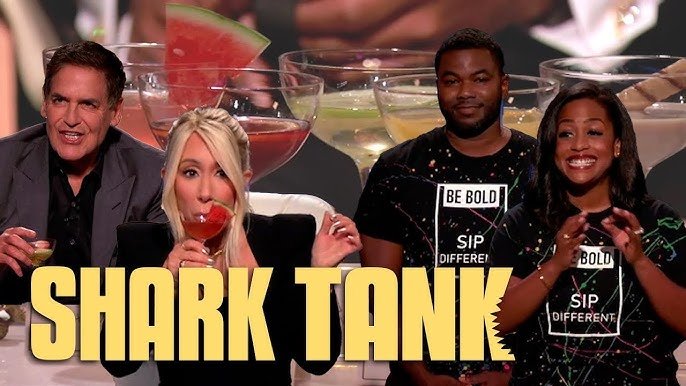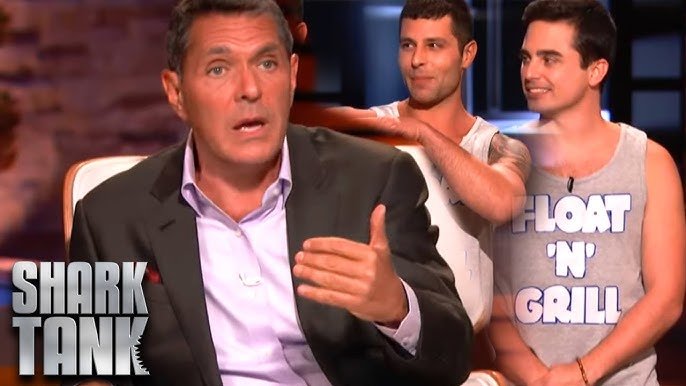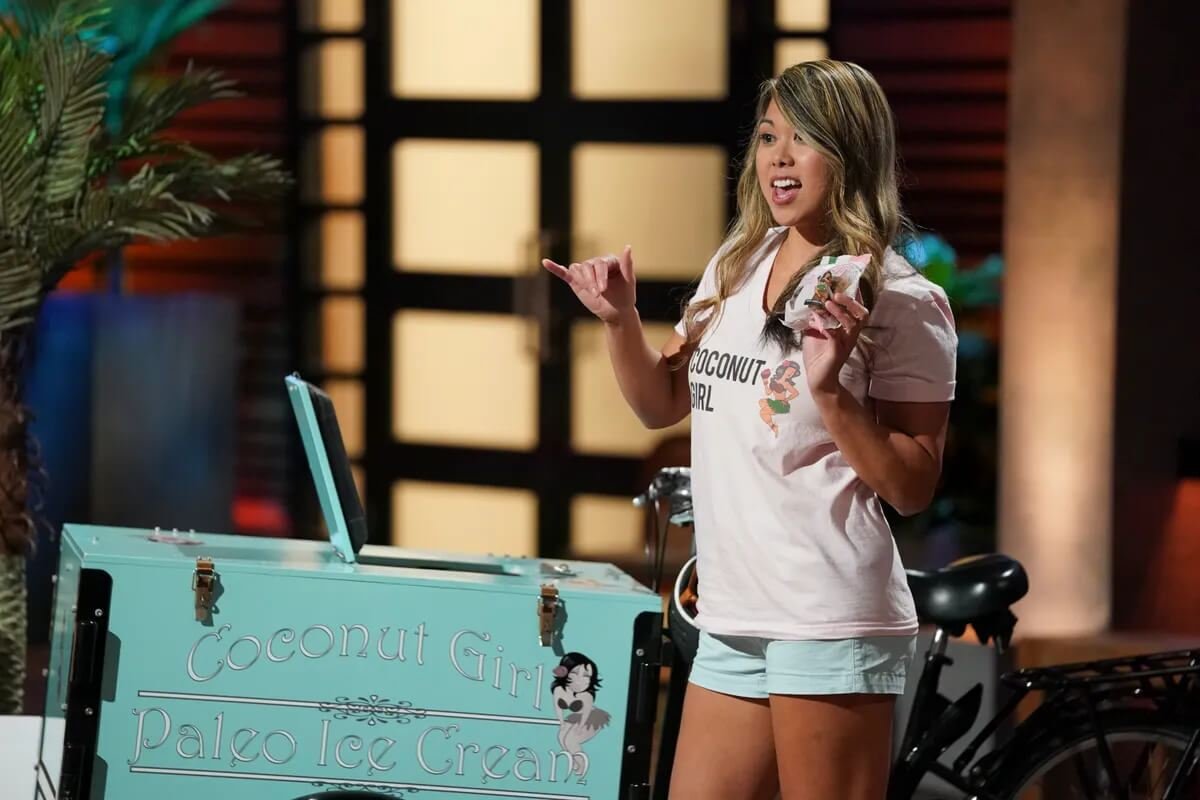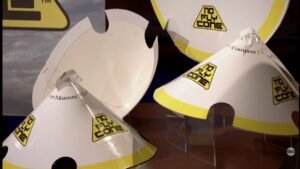Everyone sees that Shark Tank confetti moment. The handshake, the cheers, the smiles. But let’s get real. Getting a yes from a Shark is just the first lap, not the finish line. So here’s the gritty, honest breakdown of Wondry Cocktail Wines—the fruit-infused wine startup that walked into Season 14 and left with Mark Cuban in their corner. Is Wondry just another viral blip, or did they build a business that actually holds water (or, in this case, high-proof wine)? Let’s find out.
Contents
ToggleMeet Whitney and Chaz Gates: Founders Who Know the Hustle
Most people think wine is all about old French families and dusty vineyards. Whitney and Chaz Gates smashed that narrative from day one. Whitney watched her uncle ferment wild wines as a kid long before she studied winemaking at Grayson College. This isn’t some passion project with a trust fund. Whitney put in twelve years at brands like Nestle and Coca-Cola before going all-in with Wondry. That marketing muscle shows in every bottle.
Chaz Gates, meanwhile, keeps things moving as Chief Operating Officer and also serves as in-house legal counsel—while still working his main gig at Texas Instruments. That’s what I call multi-tasking, not balance. This is a side hustle that muscled up into a full business. Together, they bring real operational know-how and hustle—and as you’ll see, the numbers back it up.

Wondry Cocktail Wines: Not Your Neighborhood Grocery Shelf Juice
Here’s where things get interesting. Wondry didn’t just slap a sweet label on some grape juice. Their wines are fruit-infused—think peach, apple, mango—not your basic cabernet blend. Every bottle clocks in at 13.9% alcohol—seriously, that’s double most sweet wines. It’s got the mouthfeel and punch of a cocktail, without needing a shaker.
Let’s talk ingredients: Wondry uses organic fruit and real, small-batch aging. No weird aftertastes or artificial gunk. Is it more expensive? Yeah—but at $18.99 a bottle, they’re not trying to compete with the cheap stuff. They want loyal fans, not bargain hunters. Their Sangria Especial is the star product—grab that if you want to know why Sharks paid attention.
Own production, own bottling, own shipping—straight from their Dallas facility. Zero middlemen, and that means quality, speed, and room to experiment. This is the opposite of set it and forget it.
Shark Tank Pitch Night: The Ask, The Dance, The Tension
Shark Tank loves drama, but numbers don’t lie. Season 14, Episode 8: Whitney and Chaz didn’t stumble in hoping for a miracle. They came asking for $185,000 in exchange for 8% equity—a company valuation of $2.3 million. Not peanuts, and not some pie-in-the-sky ask either.
I’ve seen way too many founders get greedy or way too shy when the pressure’s on. Whitney and Chaz struck a clean balance—they knew what they were worth, but left room for real negotiation. The pitch wasn’t just passion—it was stats, margins, and that killer angle: less than 1% of wine companies are Black-owned. That’s not just representation talk—that’s market delta. The Sharks don’t do charity; they spot a gap and jump.
Samples hit the table. The Sharks started smiling. Sangria Especial was the crowd-pleaser, but what made the room buzz was the idea: a cocktail-level experience, no bartender needed.
The Deal: Mark Cuban Bets $225,000—At a Price
Here’s what actually went down. After some back and forth, Mark Cuban offered $225,000 for 15% equity. That’s a $1.5 million post-money valuation—less than what the Gates initially wanted. But I respect this move. Too many founders hold out for Shark Tank fairy tales and walk home empty. Whitney and Chaz played it smart: they kept enough equity to stay hungry and gave up just enough to get a heavyweight in their corner.
Cuban isn’t just a money guy. He saw that Wondry wasn’t a flash-in-the-pan product; it was a brand that could flex with trends, flavors, and direct-to-consumer moves. This deal was less about negotiating a life-changing sum and more about grabbing the right domino to knock over the next ten.
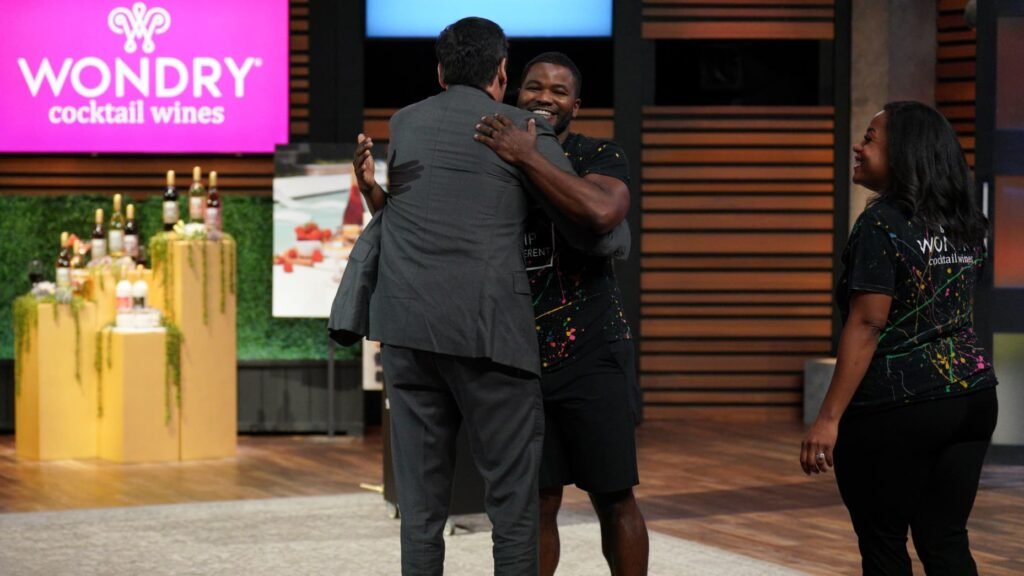
Wondry’s Net Worth: Pre-Tank, Post-Tank, and After the Hype
Let’s do the math. Original ask: $2.3 million valuation. Post-deal: $1.5 million. Not a nosebleed drop, but a real-world Shark Tank haircut.
Since then, SharkWorth and other trackers peg Wondry’s valuation climbing, thanks to steady sales and expanded reach. They’re not running a unicorn yet—but bottom line, Wondry is worth more today than the day before they met Cuban. How’d they do it? Not viral luck. It’s quality control, smart margins, and brand loyalty the big wine companies just don’t care about. No flood of venture cash, no hype cycle. Real-lever business moves.
Mark Cuban’s Playbook: Why This Deal Was About Way More Than Money
Shark Tank deals break down post-show all the time. Cuban, though, plays the long game. He didn’t just wire over the check and walk away—he plugged Wondry into his network, offered operational guidance, and helped them jump hurdles most beverage startups never even see coming.
Cuban likes brands that can live outside Costco and Whole Foods. He’s made a killing on DTC sleepers and loyalty-hungry brands before. Wondry got the Cuban effect—sales pop, but more than that, credibility that lets them ink deals, get placed in stores, and run successful event launches without begging.
I’ve watched plenty of brands fade after their Shark Tank high. Having Cuban in your slack channel is like having an ace up your sleeve at every big inflection point.
Life After TV: Did Wondry Break Out or Just Burn Bright?
Some think Shark Tank fame is a shortcut. It’s really a stress test. Wondry didn’t coast; they doubled down.
- They launched a special Shark Tank product collection to juice that post-show buzz.
- Operations stayed tight in Dallas—with direct control, they kept bottles moving and quality tight.
- They leaned into what works: Brand-hosted tastings, referral programs, and rewards for repeat buyers.
- They owned their story: Black-owned, Texas-born, risk-on. That angle turns heads and wins loyalty—no influencer campaign needed.
Sales? Still strong and expanding. No reports of layoffs, fire sales, or half-price clearance racks. The brand still stands out in a crowded, low-margin sweet wine category—a testament that they have the flywheel spinning.
Wondry’s Playbook: Turn Niche Into National
This is what I love about Wondry—they skipped the outsourcing to a giant bottler playbook. Instead, they controlled their own line, batch by batch, right in Dallas. That means speed to market. They can invent new flavors, kill losers fast, and lean into what’s trending—without twelve layers of middle management.
Events? Think intimate tastings, loyalty rewards, customer connects. Not just for buzz, but for actual feedback loops and retention. Every big direct-to-consumer winner does this right. Think how Bombas used customer love to power their word-of-mouth machine—Wondry is taking notes from the same playbook.
They priced just above the bargain basement for a reason—$18.99 says premium, but still weekday-friendly. Smart move. It’s easier to drop a price than to hike it up once you’ve gone cheap. Their focus: loyal buyers, higher margins, less race-to-the-bottom bloodletting.
Final Take: Wondry’s Staying Power—Or Just Another Drink in the Fridge?
Let’s not sugarcoat it. The market for alcohol is brutal. Trends move fast. Winning one year means nothing if you can’t keep up momentum.
But here’s why I like Wondry’s odds. The Gates have experience—forged in big-brand boardrooms, not just tasting rooms. They’ve got Cuban as a safety net and guide. Their processes? Flexible, their branding clear, and their product ticks three big boxes: taste, differentiation, and purpose.
Any big risks? Sure—always. Competition, shelf space, distractions. But they’re focused. They know why customers come back, and they know how to expand efficiently without losing identity.
End of the day, Wondry isn’t trying to be the next mass-market grocery store juggernaut. They’re building a cult following, with quality and identity at their core. That’s how you carve out lasting space—and that’s exactly what will keep this company from becoming just another Shark Tank trivia answer.
FAQs
1. Is Wondry Cocktail Wines still in business after Shark Tank?
Yes. Wondry is alive, growing, and expanding sales, especially in Dallas and online.
2. Where can you buy Wondry Cocktail Wines products?
Directly from their website, some specialty retailers, and via their own production and shipping hub in Dallas.
3. What makes Wondry different from other sweet wines or cocktails?
It’s fruit-infused, higher alcohol (13.9%), no artificial stuff, made in small batches, and features premium ingredients.
4. Did Mark Cuban’s investment lead to major changes in the company?
Definitely. Cuban brought operational advice, financial backing, and credibility—which boosted both sales and strategic focus.
5. How much are Wondry Cocktail Wines worth today?
Current SharkWorth estimates have Wondry’s post-deal valuation well above $1.5 million, trending higher with steady sales growth.
6. Are the founders of Wondry still involved in day-to-day operations?
Absolutely. Whitney and Chaz still run the show, day in, day out.
7. What is Wondry’s best-selling product right now?
Sangria Especial—if you want to taste their direction, start here.
8. Is Wondry considered a Black-owned business?
Yes, and they proudly lead in a category where Black founders make up less than 1% of the competition.
There’s the real story. Shark Tank got them attention. Hustle, focus, and knowing their value is what’s building Wondry into a lasting brand.

